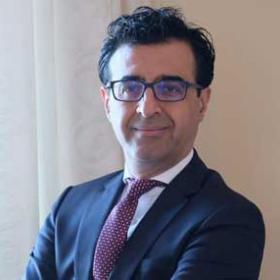
Hassan Calls for International Mediation in Iraq Crisis
On January 28, Kawa Hassan, vice president of EWI’s Middle East and North Africa (MENA) program, appeared on the Voice of America (VOA) Kurdish Service program KURD CONNECTION to discuss the continuing crisis in Iraq and how international actors can contribute to a negotiated solution.
The interview focused on a policy recommendation that Hassan presented at a recent policy dialogue panel at European Policy Center about the consequences of the U.S.-Iran conflict in Iraq.
Click here to watch the interview on VOA (in Kurdish).
Read an English summary of Hassan's remarks, below:
Despite repression and intimidation, the protests continue in Iraq. The government and ruling class, particularly the Shiite parties, can't find a reasonable solution for the crisis. The result is a dangerous political stalemate. Day by day, the conflict gets bloodier and more complicated. If the current repression continues, which I am afraid will be the case, the peaceful protest movement—or part of it—might decide to take up arms to defend unarmed demonstrators, causing the situation to spin out of control.
The fragmentation of political forces, especially the Shiite parties, makes it extremely difficult to find a political solution that can be accepted by all parties and the protest movement. To break the deadlock, there is a need to pressure and persuade the most influential Shiite parties and government to accept international mediation.
The idea I suggested at the EPC policy dialogue event is to organize an international conference akin to the recent Berlin Conference on Libya. All the key actors should participate in this conference, including the Iraqi government, representatives of the protest movement, Iran, the U.S. and other relevant regional and international powers and institutions. Through EWI’s engagement with Iraqi and regional actors over the past seven months, we know that to a large extent the EU is considered a neutral player. This neutrality would allow the EU—in partnership with key European countries and the UN—to take the lead in organizing this international conference.
I know this is not an easy task given the internal fragmentation inside Iraq coupled with external intervention. Furthermore, I am mindful of the fact that decision-making within the EU is a slow process, and it takes time for the member states to arrive at a common policy. However, we don't have the luxury of time or chance; we cannot say "let's wait and see." The situation is deteriorating very rapidly. Now is the right time to act and initiate an international mediation process for the Iraqi crisis.

